ASTANA – Driven by the great love for his father, the support and understanding of millions around the globe, the suffering of people from nuclear testing, and the hope for human kindness, Karipbek Kuyukov, a Kazakh painter and global anti-nuclear activist, continues his struggle for a world without nuclear weapons. Kuyukov was born without arms as a result of exposure to radiation from Soviet nuclear testing in Kazakhstan. For more than 35 years, he has been dedicated to keeping the world safe from nuclear weapons.
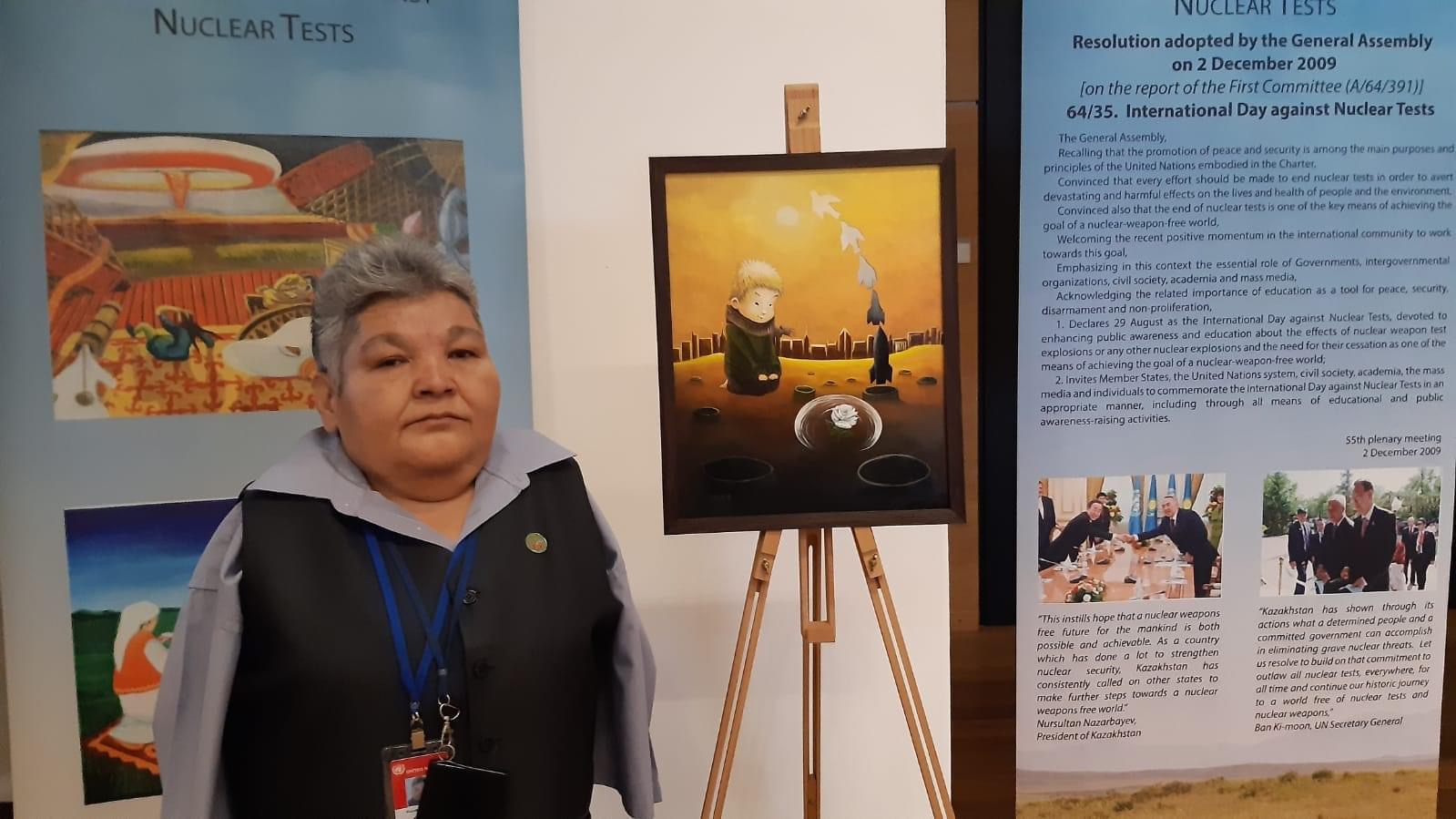
His artistic journey began with simple drawings, using his feet to bring characters from beloved poems and tales to life. Photo credit: Karipbek Kuyukov’s personal archive
Kuyukov was appointed Kazakhstan’s Goodwill Ambassador by the Kazakh Foreign Ministry in June as part of an initiative to recognize and honor people who have significantly contributed to improving Kazakhstan’s international image.
Childhood, studies in Leningrad
Kuyukov was born into an ordinary Kazakh family in 1968 in the village of Yegindybulak, located 100 kilometers from the Soviet-era Semipalatinsk Nuclear Test Site.
“I don’t remember my childhood that much. The only clear memory I have is when I started first grade at school. However, I frequently ask my family about my early years. Naturally, my birth—being a child without arms—was a shock for my mother. Any mother wants to have a healthy child,” he told The Astana Times.
His mother, who had already lost two children before Kuyukov’s birth, struggled with unbearable trauma. Witnessing a young woman’s suffering, the doctors at the maternity hospital called Kuyukov’s father and suggested making an injection to end the baby’s life.
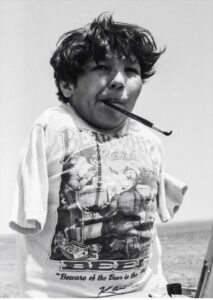
Kuyukov dedicated his life to promoting the world free of nuclear weapons. Photo credit: Karipbek Kuyukov’s personal archive
“At that time, it was a common practice. My dad told me about it later. He said that when he came to see me and saw his newborn kicking his legs, he did not hesitate to take me home. And so, he brought us home,” Kuyukov said.
Recalling his early years, Kuyukov spoke about his brother who always stood up for him when the neighboring children teased the little boy, and his father’s efforts and determination to make the childhood and future of his son better and brighter.
“When I started crawling around the house, I could not climb over the threshold. My father noticed this and simply cut out all the thresholds in the house with an ax so that I could move freely,” he said.
His parents were hard-working people and when the time came, they wanted his son to have prosthetics, so that he could go to school.
“Naturally, any father thinks about how his son will live in the future. Any father wants to give the best to his son. So, he took me to Almaty to get prosthetics. At that time, there were specialists from the Leningrad Research Institute for Prosthetics who were developing and testing the latest prosthetics. When they saw me, they suggested making prosthetics for me and, of course, my father agreed,” he said.
Kuyukov went to Leningrad (what is now St. Petersburg) and studied at the research institute’s educational boarding school. He attended lessons during school hours, and in the summer, doctors tested new prostheses on him. However, he never fully adapted to using them.
He completed his studies in 1987 and returned home, which he missed greatly. He recalls waking up to an earthquake caused by nuclear explosions.
“It was the first time I had felt something like that. I was scared, of course. The chandelier started swaying, and the dishes in the cupboards were rattling. Then my father told me that this happened regularly,” he said.
Kuyukov’s journey as an artist
A love for creativity was instilled in Kuyukov during his childhood, particularly during his studies in Leningrad, and it began with simple drawings. He loved reading books and drawing characters from poems and tales using feet. His first drawing was inspired by the famous opening lines of Alexander Pushkin’s famous “Ruslan and Lyudmila” poem.
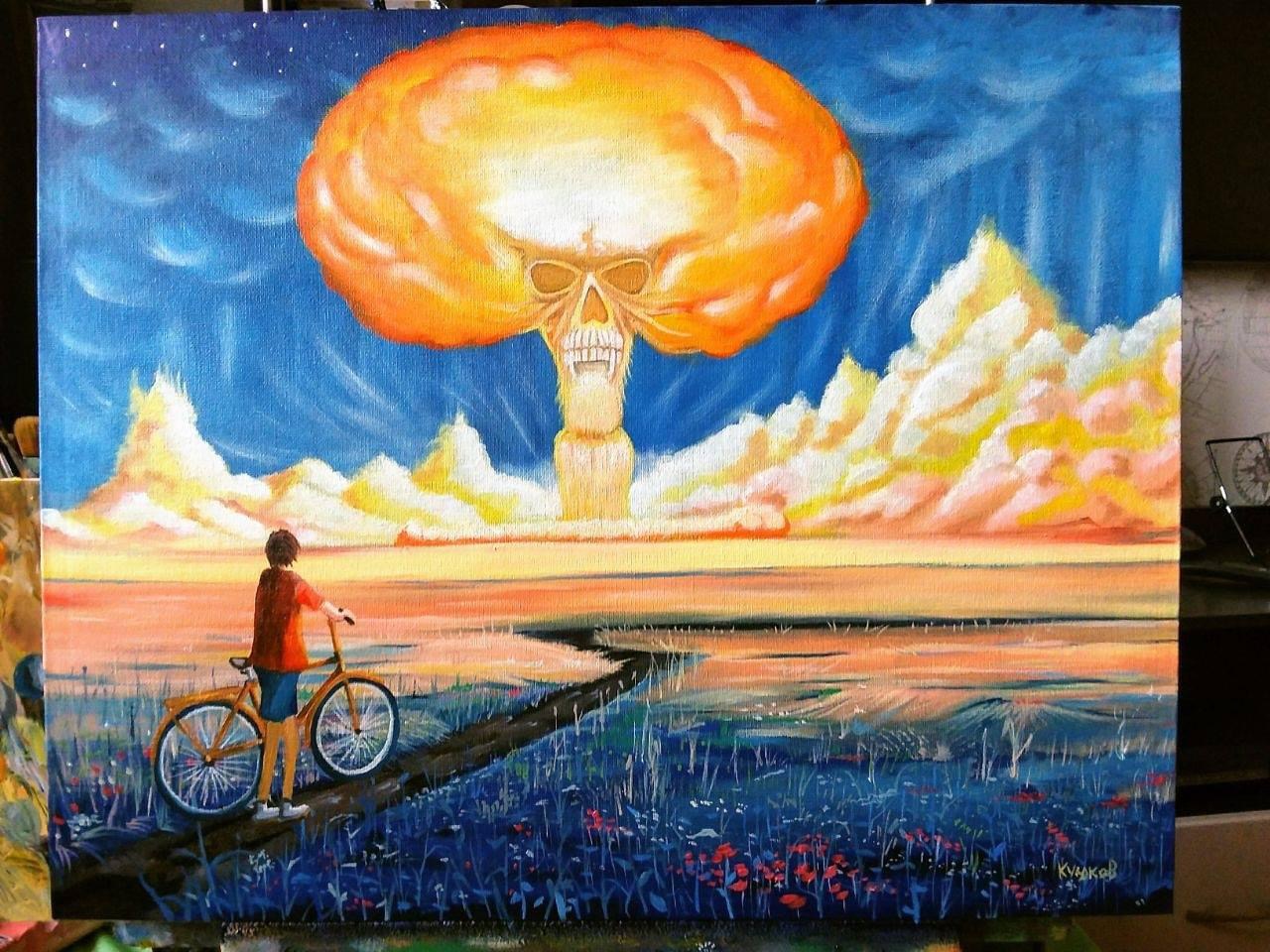
His works have been shown around the world. Photo credit: Karipbek Kuyukov’s personal archive
“I depicted a green oak tree, a gold chain and a cat and showed it to my teacher. She was surprised, and from then on, I became involved in all drawing activities. I love drawing landscapes, it is important to value nature, as it gives us food, water and air,” he said.
His paintings are held in the collections of Barack Obama, Jean-Claude Van Damme and other individuals in the United States, Italy, Japan and other countries.
“This is a great honor for me. In this way, I will leave a memory behind. I could not create a family, and I do not have children, but these paintings are my legacy,” he said.
Anti-nuclear movement, echoes of nuclear explosions
In 1989, Kazakhstan’s poet and prominent figure Olzhas Suleimenov created the Nevada-Semipalatinsk International Anti-Nuclear Movement, which united victims of nuclear tests around the world. Demonstrations, protest and peace marches were held in Kazakhstan, Russia, the United States and Japan.
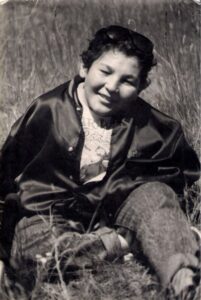
Kuyukov shared memories of his brother always defending him from the teasing of other children and his father’s unwavering determination to create a better, brighter future for his son. Photo credit: Karipbek Kuyukov’s personal archive
“There was a huge race going on, with each side creating more and more powerful bombs. It reached a point where it was no longer possible to remain silent about it. I have been participating in demonstrations since the first days of this movement, and it has always been extremely important to me. By the will of fate, I was born alive. Thank God, I finished my studies, received an education, and became a creative person who can paint pictures. There is an Anatomical Museum in Semei that exhibits embryos with developmental anomalies caused by nuclear tests. These embryos, these unborn children, are like me. There are also children who were born, but their parents are too ashamed to show them, so they hide them. These are tragic fates. These children don’t go to school; they are locked within four walls. So, I decided that I would devote my entire life to fighting against nuclear weapons and speaking up on behalf of all these children,” Kuyukov said.
Last week in Semei, Kuyukov visited an orphanage for abandoned children, victims of nuclear tests, who were born disabled. This orphanage serves as a stark reminder that nuclear radiation in the area still causes DNA mutation.
Kuyukov’s role as Goodwill Ambassador
As a Goodwill Ambassador, Kuyukov focuses on the preservation of ecology, promoting healthy ecosystems and fostering positive change in society.
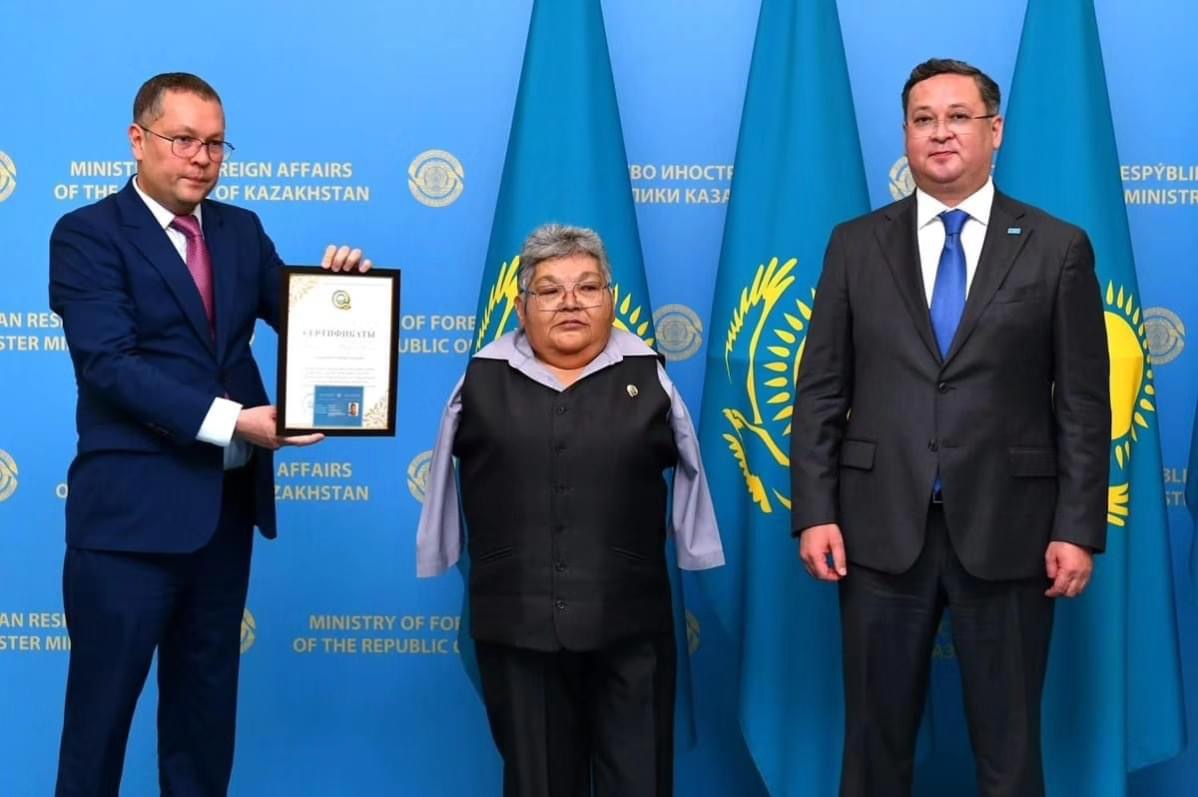
Kuyukov received the award from Kazakhstan’s Deputy Minister – Foreign Minister Murat Nurtleu (on the left) in June 2024 in Astana. Photo credit: Karipbek Kuyukov’s personal archive
“While I have the strength and opportunity, I will always participate in activities that can make the world better. I believe every citizen should contribute, whether it’s in ecology, medicine, or art. I frequently speak to students and schoolchildren, hoping that perhaps I can help someone with a word or some advice. I always say that caring for the environment starts at home. There’s a wonderful proverb: ‘It is not clean where they clean, but where they do not litter.’ I urge people, especially children and youth, to protect the environment and do no harm to nature. I consistently advocate for random acts of kindness, empathy, compassion and sensitivity toward the suffering of both animals and people,” Kuyukov said.
